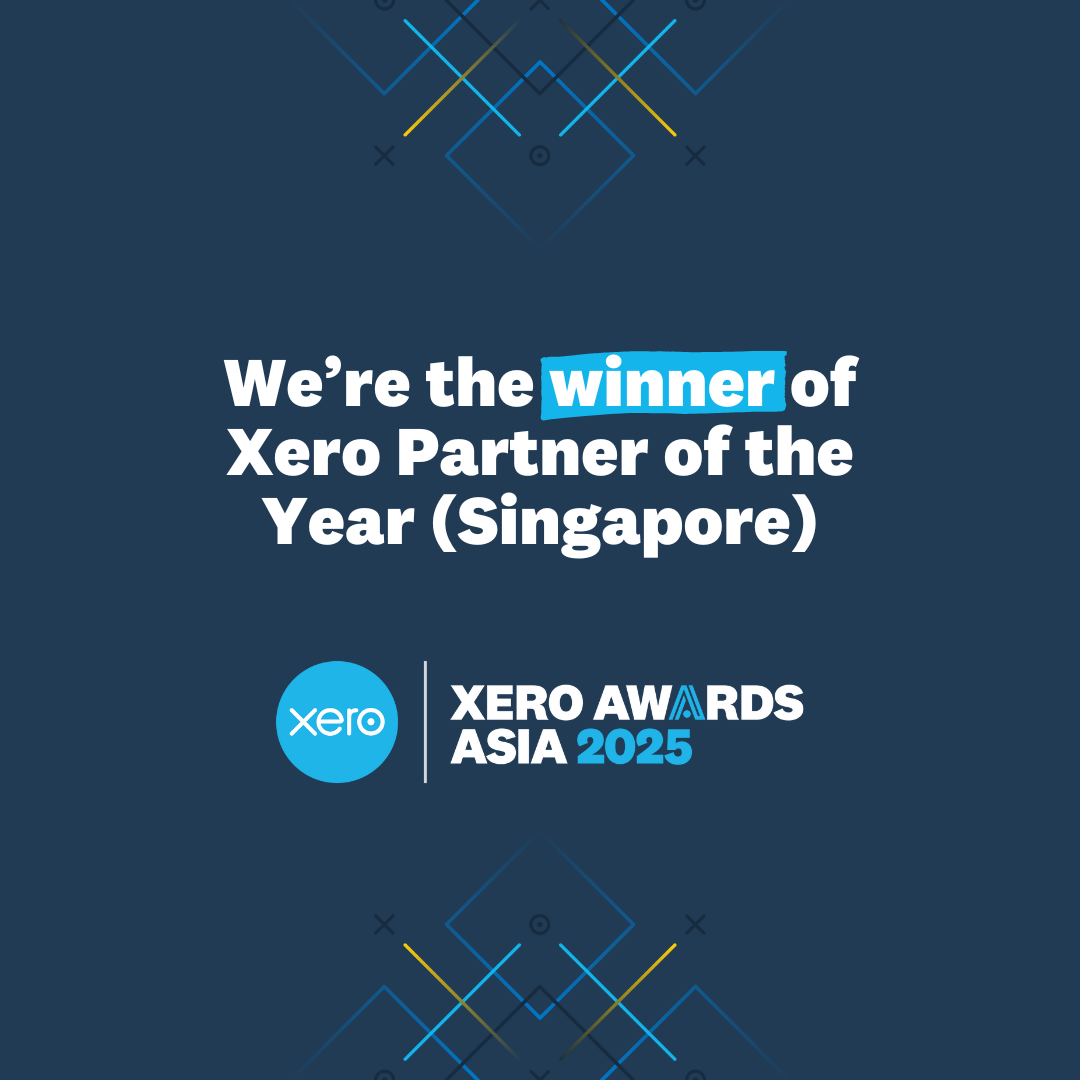Compensation Planning for Small Business Owners in Singapore
As a small business owner in Singapore, understanding the nuances of how to compensate yourself can have significant financial implications. Whether to pay yourself a salary, director's fee, or dividends is a complex decision that requires a balanced approach to optimise tax savings both for yourself and your company. Here’s a comprehensive guide to help you navigate this crucial aspect of your business.
Salary vs. Director’s Fee vs. Dividends
There are several ways to take out money from your company. Here's an overview:
Salary:
- CPF Contributions: If you are a Singapore citizen or Permanent Resident, CPF contributions are mandatory for salaries. This includes a 17% employer contribution, which, though an additional expense for the company, is deductible.
- Flexibility: Salaries are typically more flexible as they are drawn up via employment contracts.
- Taxation: Salaries are taxable as personal income and allow for CPF relief in your personal tax return.
- Grants Benefits: Some grants such as SFEC or previous COVID-19 relief grants were tagged to employees drawing a salary with CPF contribution. Paying yourself a salary as an owner may allow your business to benefit more from future grant initiatives.
Director’s Fee:
- No CPF Requirement: Director’s fees are not subject to CPF contributions, providing immediate liquidity.
- Formality: Requires resolutions and possibly the involvement of a corporate secretary, which could incur additional costs.
- Taxation: Like salaries, director’s fees are taxable as personal income and are deductible expenses for the company.
Dividends:
- Tax-Free: Dividends received from a Singapore company are tax-exempt for shareholders under the one-tier corporate tax system.
- Corporate Level: Dividends are paid out of retained profits, which means they have already been subjected to corporate tax. Dividends are not deductible expenses for the company.
- Profit Requirement: Your company must have sufficient retained profits to declare dividends.

Optimal Compensation Strategy
The most effective compensation strategy often involves a mix of salary and dividends. Here’s a step-by-step approach to balance both personal and corporate tax liabilities:
- Pay a Modest / Reasonable Salary: Start with a modest salary that is "defensible" and meets your immediate financial needs. This ensures CPF contributions and may help the company with certain grant eligibility.
- Assess Profit and Effective Tax Rate: At the end of the financial year, calculate your company’s profit and determine the effective corporate tax rate, taking corporate tax exemptions into consideration.
- Director’s Fee to Adjust Effective Tax Rate: Pay yourself a director’s fee to lower your company’s taxable income, ensuring the effective corporate tax rate is lower than your personal income tax rate.
- Declare Dividends: If you want or need to withdrawal additional funds from the company, distribute the remaining profits as dividends, which are tax-free in your hands.
Practical Considerations
- Corporate and Personal Tax Rates: The corporate tax rate in Singapore is a flat 17%, but all companies (as at YA2024) enjoy tax exemptions on the first S$200,000 of chargeable income. The exemption are also more for the first three years. Companies also enjoy additional rebates in YA2024 which will affect any calculations. Personal income tax rates are progressive, ranging from 0% to 24% in YA2024.
- Loan and Credit Applications: Declaring a higher personal income can be advantageous if you plan to apply for loans - say for a property, or credit cards in the future.
- Future Cash Needs: If you need to withdraw more money than planned, consider the tax implications. Dividends can be declared as needed, providing flexibility.
Illustrative Example
Let's say your company has S$250,000 profit in first year of assessment, in YA2024.
If you have not declared any income to yourself, and all income is kept within the business, company tax payable after exemptions (including YA2024 CIT rebate and tax exemption scheme for new start up companies) will be S$10,625. This works out to an effective tax rate of 4.25%.
However, if you were to give yourself remuneration via salary or Director's fee of S$50,000, this would result in S$6,375 tax payable by the company, and S$1,250 of personal tax for a total of S$7,625 tax to pay at an effective rate of 3.05%.
In this scenario, you could save S$3,000 income tax by declaring a salary or director fee of S$50,000.
Of course, this example ignores any income already received personally, or any rebates that might be available. Further analysis would be required.
Additional Considerations
- Tax Deductions and Reliefs: Utilise available tax deductions such as employment expenses, course fees relief, CPF cash top-up relief, and Supplementary Retirement Scheme (SRS) relief to further reduce your personal taxable income.
- Documentation: Keep all supporting documents and records for at least five years to comply with tax regulations.

Conclusion
Balancing salary, director’s fee, and dividends can help you minimise both personal and corporate tax liabilities. While this guide provides a foundational understanding, the complexities of tax planning often require professional advice to create a strategy that best suits your specific circumstances.
For personalised advice and assistance with bookkeeping and tax planning, contact Harvest Accounting today. Let us help you optimise your compensation strategy and maximise your tax savings.
Latest Posts
Sign up to our monthly "Picks of the Crop" newsletter for the latest accounting and business updates.
Terms & Conditions, Privacy and Data Protection Policy






